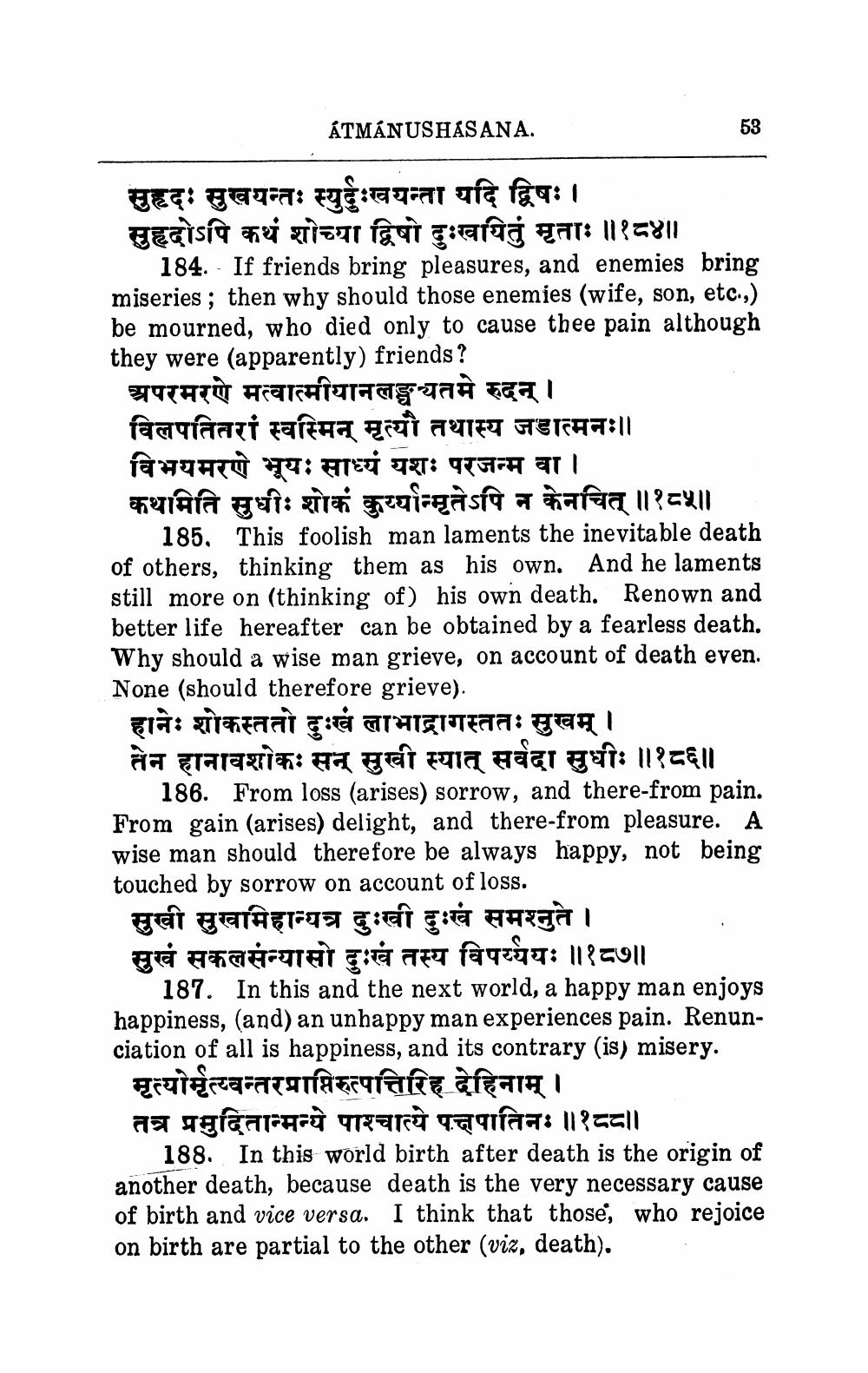________________
ÁTMÁNUSHASANA.
58
सुहृदः सुखयन्तः स्युर्दुःखयन्ता यदि द्विषः । सुहृदोऽपि कथं शोच्या द्विषो दुःखयितुं मृताः॥१८४॥
184. - If friends bring pleasures, and enemies bring miseries; then why should those enemies (wife, son, etc.,) be mourned, who died only to cause thee pain although they were (apparently) friends?
अपरमरणे मत्वात्मीयानलङ्घयतमे रुदन् । विलपतितरां स्वस्मिन् मृत्यौ तथास्य जडात्मनः॥ विभयमरणे भूयः साध्यं यशः परजन्म वा । कथमिति सुधीः शोकं कान्मृतेऽपि न केनचित् ॥१८॥ ___185. This foolish man laments the inevitable death of others, thinking them as his own. And he laments still more on (thinking of) his own death. Renown and better life hereafter can be obtained by a fearless death. Why should a wise man grieve, on account of death even. None (should therefore grieve). हाने शोकस्ततो दुःखं लाभाद्रागस्ततः सुखम् । तेन हानावशोकः सन् सुखी स्यात् सर्वदा सुधीः ॥१८६॥
186. From loss (arises) sorrow, and there-from pain. From gain (arises) delight, and there-from pleasure. A wise man should therefore be always happy, not being touched by sorrow on account of loss. सुखी सुखमिहान्यत्र दुःखी दुःखं समश्नुते । सुखं सकलसंन्यासो दुःखं तस्य विपर्ययः॥१८॥ ____187. In this and the next world, a happy man enjoys happiness, (and) an unhappy man experiences pain. Renunciation of all is happiness, and its contrary (is) misery.
मृत्योर्मृत्य्वन्तरप्राप्तिरुत्पत्तिरिह देहिनाम् । तत्र प्रमुदितान्मन्ये पाश्चात्ये पक्षपातिनः॥१८॥
188. In this world birth after death is the origin of another death, because death is the very necessary cause of birth and vice versa. I think that those, who rejoice on birth are partial to the other (viz, death).




